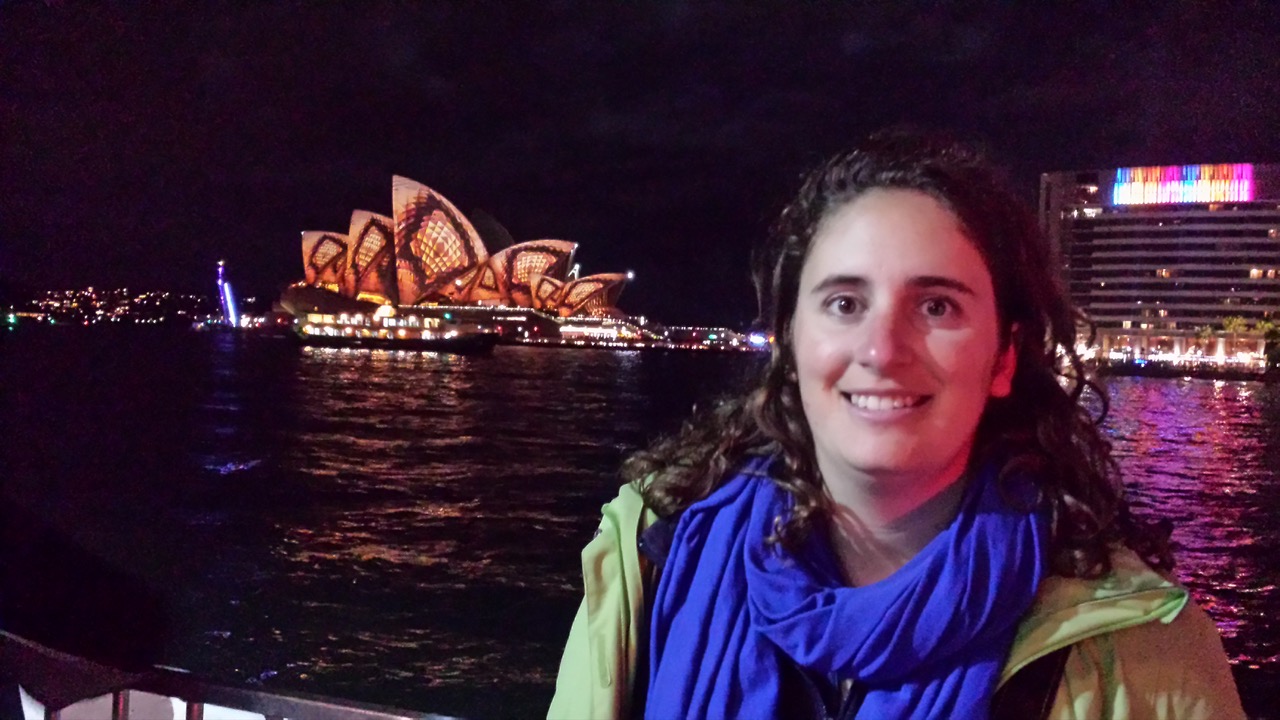Until August 2017, Liesbeth Aerts lived in Sydney, where she worked as a dementia researcher at the University of New South Wales. She studied bio-engineering and neuroscience (in Belgium and in the UK, respectively) and did a PhD focused on the molecular mechanisms of Parkinson’s disease at VIB/KU Leuven. After a short stint in the US freelancing as a scientific editor, she moved to Sydney in 2015. There, she was involved in several ongoing longitudinal studies assessing cognitive decline in older people. In a nutshell, they wanted to find out who will get dementia and who will not. Read the interview on her experiences!
What do you specifically enjoy about your job in Sydney?
My original training is as a molecular biologist working in a wet-lab research environment. The work I did in Sydney was much more clinically oriented, and many of my colleagues were psychologists, doctors, nurses, occupational therapists… It was very rewarding to work within such a diverse team and to produce results that can directly impact patient assessment and care.
What is the difference between working there and working in Belgium?
Australians are known to have a good work–life balance, and my experience confirms this. I rarely worked late in the evening or on the weekend, and our meetings were never before 9 am or after 5 pm.
On the other hand, because of its geographical remoteness, I find the scientific community is also a bit more isolated in Australia. Of course, there is a lot of international collaboration, but compared to Belgium, there are much fewer opportunities to attend seminars by international speakers. Most conferences are organized in either Europe or the US, and both are very expensive to travel to.
What opportunities did you have there that you don’t have in Belgium?
It is difficult to compare my experience there as a postdoc with that in Belgium as a student. Overall, there is a lot of public interest and support for dementia research in Australia, but because of complex political and bureaucratic reasons, the funding stream is slow and short-term. A lot of grants are reserved for Australian residents, but I presume non-Europeans face the same problems when applying for funding in Belgium.
What did you like or dislike about Sydney?
Sydney is a wonderful place to live; the weather is lovely most days, and the beach is always calling. Unfortunately, the cost of housing is outrageous. Buying a home has become unaffordable for all but the super wealthy. My partner and I rented a small one-bedroom place in the eastern suburbs. It was nothing special, but the location was superb: halfway between the campus and the ocean. We spent much more time outside than we used to in Belgium.
In terms of culinary needs, I couldn’t complain. We were spoiled for food, even on campus, but I still missed good bread and, of course, chocolate! Australia has amazing wine and a thriving beer scene, but alcohol is much more expensive and heavily regulated.
We insisted on commuting by bike, but we missed the safety of Belgian roads. Cycle paths are scarce, and drivers are very hostile towards cyclists. It’s a real jungle!
What did you miss most about Belgium?
Without a doubt, seeing friends and family. It is time consuming and expensive to visit Belgium when you live in Australia, and we have had to miss several important moments like weddings and the arrival of a new baby in the family. What’s even worse than missing out on parties is not being there when someone close to you is not well or is going through a difficult time.
How do you spend your time when you’re not at work?
Australians spend a lot of time outdoors, exercising or socializing in and around the water. Most weekends, we headed out to one of the nearby beaches. I love to swim at one of the many ocean pools in Sydney. It has all of the upsides of swimming in the ocean without the downsides, such as dangerous riptides and drop waves (and sand everywhere!).
The beach is also a great place to read or to meet up with friends, and a perfect place for whale watching.
Why did you come back to Belgium?
Although we loved it in Sydney, we were there on a temporary visa that expired. My partner is also a researcher, and it is not always straightforward to align two careers. At the moment, the best opportunities for us are in Belgium. I have started a new challenge working as a science communicator. I am very excited about that!
Further down the line, I’d be open to moving abroad again. We’ll see what the future brings.


